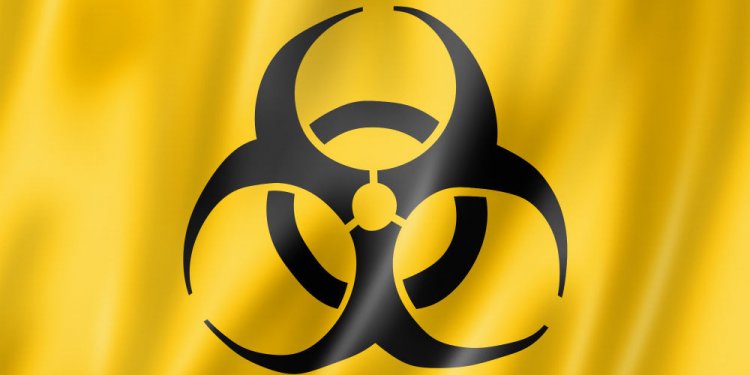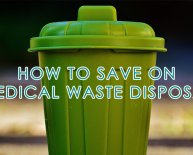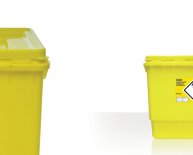
Laboratory Waste Disposal Guidelines
Environmental regulatory burdens are inappropriately placed on many academic, commercial, and government laboratories when regulations designed to address large-scale industrial operations are applied to laboratories. Research, development, instructional, and service laboratories generate a broad range of small quantities of hazardous wastes, but are forced to individually manage each type of waste with the same rigor applied to those who create large amounts of relatively few wastes. By applying an industrial regulatory scheme to laboratories, unintended, ineffective, and inappropriate burdens are placed on these facilities.
The American Chemical Society (ACS) is committed to the health and safety of both humans and the environment in all of the operations of the chemical enterprise, but inappropriate regulation of laboratories hampers their efficiency and effectiveness and slows the progress of science and technology. To this end, the ACS makes the following recommendations:
Consistent Interpretation of Regulations by State and Federal Agencies
The U.S. regulatory system involves multiple federal, state, and local regulators. This often leads to inconsistent interpretations and makes development of “best practices” for waste management treatment difficult. State regulations must be at least as stringent as related federal regulations, and local regulations at least as stringent as related federal and state regulations. For consistency, when a local or state regulation is identical to the federal, that regulation should be interpreted and enforced in an identical manner.
- ACS encourages consistent interpretation and enforcement of regulations at the state and federal levels.
Implementation and Expansion of the Environmental Protection Agency’s (EPA) Subpart K Regulations for Laboratories
The Subpart K regulations for academic laboratories represent a good, first step towards needed regulatory relief for laboratory facilities. However, until states with authority to regulate hazardous waste activities adopt these rules, they will not be accessible to most laboratories. State environmental agencies need to be aware of the special issues laboratories face in complying with the hazardous waste regulations. In addition, these rules should also be applied to commercial and industrial laboratory facilities that face the same unique challenges as academic facilities. Additional regulatory relief is needed in the form of Subpart K amendments, including the elimination of the six-month limit on storage of waste in the laboratory. This is an onerous requirement that can significantly increase handling of waste without any apparent benefit to either regulators or the regulated community. Laboratory treatment of hazardous waste without a permit to minimize waste and reduce costs has been a longtime ACS goal. Subpart K appears to allow treatment without a permit, but the allowance has not been confirmed by EPA.
- ACS recommends that all states adopt Subpart K.
- ACS recommends that non-academic laboratories be eligible for Subpart K.
- ACS recommends elimination of the six-month limit on removal of unwanted material from the laboratory.
- ACS recommends that EPA confirms that treatment of unwanted material in a laboratory without a permit under Subpart K is allowed.
- ACS recommends the elimination of other overly restrictive requirements of Subpart K.
Land Disposal Restriction Forms
All generators of hazardous waste are required to notify waste disposal facilities of allowable disposal technologies for each individual waste generated. This requirement dates to 1984 when a three-phase time frame to eliminate the land disposal of hazardous waste was initiated. The requirement for land disposal restriction notification is now obsolete and duplicative because these facilities already know how they are required to handle the wastes. They also are aware of the relevant health and safety issues for these wastes, which are handled on other required forms. The burden of this useless form is almost exclusively placed on laboratories, since the form must be completed only once for each waste. Laboratories differ from most industries in that the majority of their wastes are not repetitive. Since discarded laboratory reagents and other experimental wastes are considered unique, they require land disposal restriction notifications for each packaging unit and every shipment. The additional cost to laboratories to fill out and submit these useless forms with each shipment is significant. All hazardous waste shipments require generators to sign manifests identifying the hazards associated with the waste (i.e., EPA hazardous waste codes) and waste disposal facilities require waste profiles to further characterize them. The EPA already establishes and restricts waste disposal methods associated with each EPA hazardous waste code. Once wastes are received by the disposal facility, the disposal facility signs the manifest acknowledging acceptance of the wastes. Equivalent notification and acceptance of waste disposal restrictions can be achieved via the hazardous waste manifest process with generator-assigned EPA hazardous waste codes, disposal facility waste profiles, and the EPA’s existing disposal restrictions associated with the EPA hazardous waste codes.
- ACS recommends the elimination of the land disposal restriction notification requirement for laboratories.
















